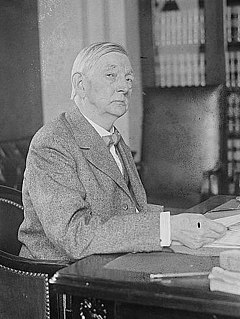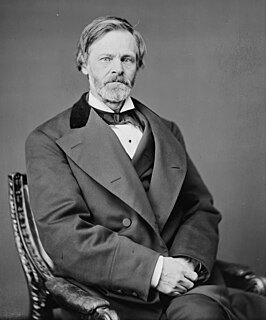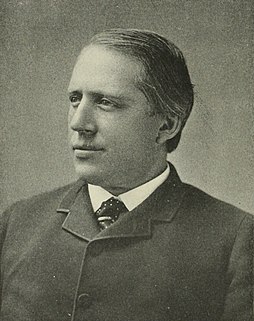Related Research Articles

The United States Senate Committee on Energy and Natural Resources is a standing committee of the United States Senate. It has jurisdiction over matters related to energy and nuclear waste policy, territorial policy, native Hawaiian matters, and public lands. Its roots go back to the Committee on Interior and Insulars Affairs. In 1977, it became the Committee on Energy and Natural Resources, and Indian Affairs were removed from its jurisdiction into its own committee.
The United States Senate Committee on Health, Education, Labor and Pensions (HELP) generally considers matters relating to these issues. Its jurisdiction extends beyond these issues to include several more specific areas, as defined by Senate rules.

The Senate Committee on Rules and Administration, also called the Senate Rules Committee, is responsible for the rules of the United States Senate, administration of congressional buildings, and with credentials and qualifications of members of the Senate, including responsibility for contested elections. The committee is not as powerful as its House counterpart, the House Committee on Rules as it does not set the terms of debate for individual legislative proposals, since the Senate has a tradition of open debate. Some members of the committee are also ex officio members of the Joint Committee on the Library and the Joint Committee on Printing.
The United States Senate Select Committee on the Tenth Census was created in 1878. It continued to operate until 1887, when it became the United States Senate Committee on the Census. The Committee was abolished in 1921. Issues related to the U.S. Census and the U.S. Census Bureau are now under the jurisdiction of the United States Senate Committee on Homeland Security and Governmental Affairs.

United States Senate Committee on Civil Service is a defunct committee of the United States Senate.
The United States Senate Committee on Claims was among the first standing committees established in the Senate. It dealt generally with issues related to private bills and petitions. After reforms in the 1880s that created judicial and administrative remedies for petitioners, it declined in importance, and was abolished in 1947.

Alva Blanchard Adams was a Democratic politician who represented Colorado in the United States Senate from 1923 until 1924 and again from 1933 to 1941.
The United States Senate Committee on Rules is a defunct Congressional committee, replaced by the United States Senate Committee on Rules and Administration.

William Joel Stone was a Democratic politician from Missouri who represented his state in the United States House of Representatives from 1885 to 1891, and in the U.S. Senate from 1903 until his death; he also served as the 28th Governor of Missouri from 1893 to 1897.

William Vincent Allen was an American jurist and twice a U.S. Senator from Nebraska.
Founded June 2, 1890 as a Select Committee, the Committee to Establish a University of the United States was an initiative of the United States Senate which became a Standing Committee on March 19, 1896. During this time there was also a National University Committee outside of the Senate.
Originally established December 4, 1878 as the Select Committee on Epidemic Diseases. It became a standing committee on December 12, 1887 until March 19, 1896, when the name was changed to the Committee on Public Health and National Quarantine. Terminated April 18, 1921.
William Duncan Connor was a Canadian-born American politician and the 20th Lieutenant Governor of Wisconsin from 1907–1909.

The United States Senate elections of 1894 and 1895 were a slight Republican victory. It was a different story in the House where Democrats suffered massive losses. The senators elected went on to serve in the 54th Congress.
The Senate Committee on Industrial Expositions was a committee of the United States Senate between 1899 and 1921. It was originally established as a select committee, but became a standing committee in 1909. It was preceded by three other select committees.

The United States Senate elections of 1892 and 1893 were elections which, corresponding with former Democratic President Grover Cleveland's return to power, had the Republican Party lose nine seats in the United States Senate and lose its majority to the Democratic Party. The Democratic majority, however, was minimal and didn't last past the next Congress.
References
- ↑ "Chairmen of Senate Standing Committees 1789-Present" (PDF). Senate Historical Office. June 2008. p. 35. Retrieved 2009-05-07.
- ↑ Official Congressional Directory. 63rd Congress, 1st Session (1st ed.). Washington, D.C.: Government Printing Office. 1913. pp. 163–172. hdl:2027/mdp.39015022758323.
- ↑ "May 27, 1920: Senate Eliminates 42 Committees". Historical Minute Essays. United States Senate Historical Office. Retrieved 2009-05-11.
| | This United States Congress–related article is a stub. You can help Wikipedia by expanding it. |